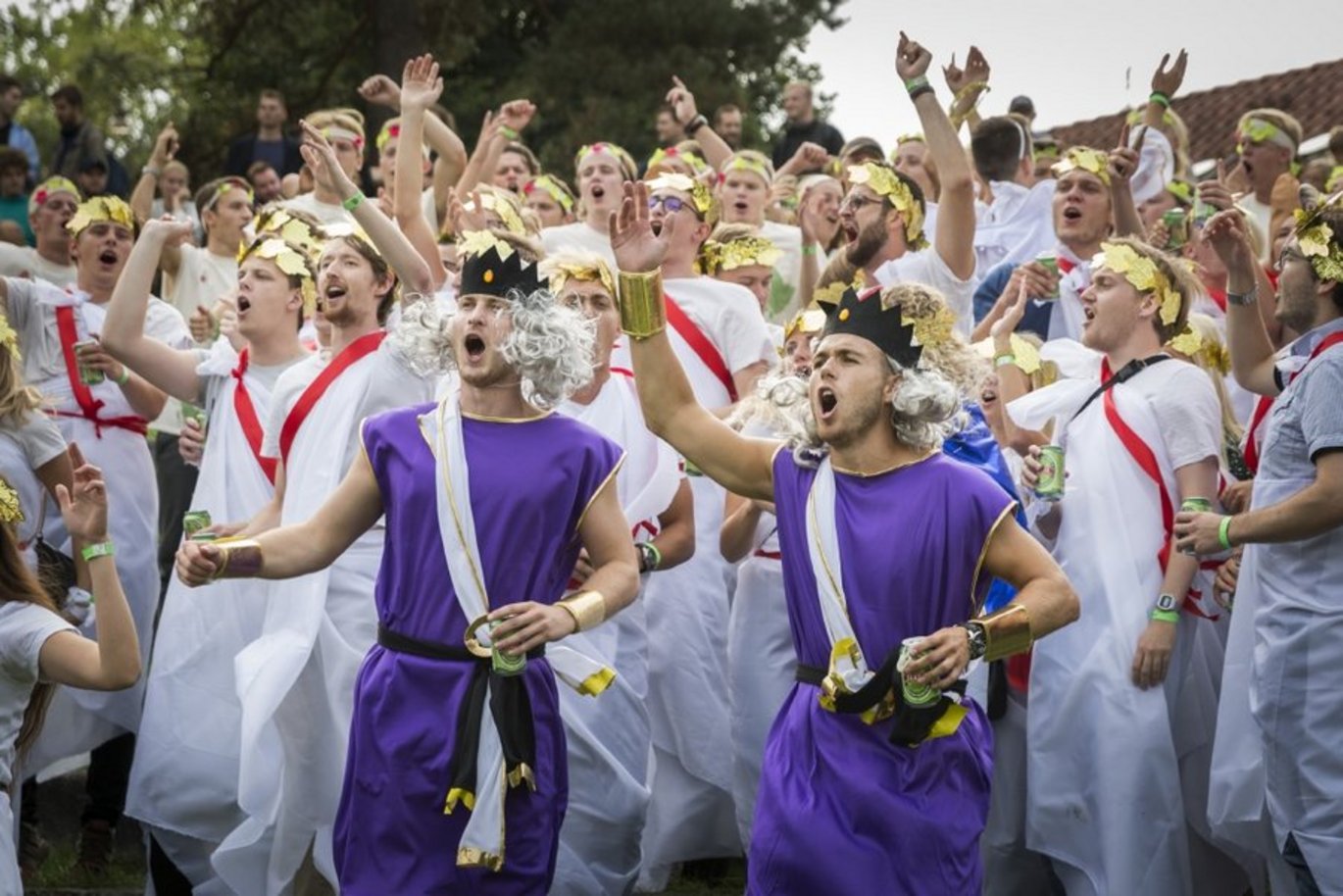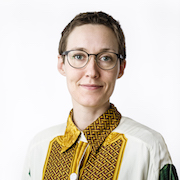PhD: We believe that alcohol liberates our true selves
While DTU (the Technical University of Denmark) offers alcohol-free freshers’ trips, there’s no alcohol-free alternative at AU. Even when the medical students attempted a small alcohol-free experiment, it failed. A new PhD on freshers’ week culture might help explain why.


Why is alcohol so criticized by some and so indispensable for others? This question has become more pressing in the light of the current debate on DTU’s alcohol-free freshers’ trips and the most recent changes to AU’s alcohol policy. You may already be familiar with the gist of the critique from the many stories in the media about students who’ve felt pressure to drink alcohol, eat nasty things or participate in games with sexual undertones during freshers’ week. There’s been no lack of examples of students who’ve felt that their personal boundaries got crossed in the alcoholic haze of freshers’ week. So why does the alcohol tradition continue to survive?
A quick trip back in time to the medical students’ winter freshers’ week may enlighten us. At that point, Søren Helsø was chief tutor on the medical program, and together with the rest of the tutor group, he had made a decision:
“We wanted to carry out an experiment where we cut out 50 percent of the alcohol consumption on the weekend trip,” he says.
In practice, this meant that the weekend trip’s party drinking was to be limited to Saturday’s excesses. Friday was to be a chill evening which didn’t leave the freshers in a puddle of hangover headaches the next day. Instead, the idea was that they would hang out with their tutors in the cabins.
Were you not allowed to drink alcohol at all?
“The plan was to keep it completely alcohol-free, but we modified it a little as the evening went on in my cabin, so you could drink one or two beers. Yes, and that might also have been because of some miscommunication between us tutors, because in some cabins they didn’t get anything at all,” Søren adds.
Alcohol sets you free
What alcohol means to freshers’ week – and by extension what was removed from the medical students’ weekend trip – is a question Mette My Hansen has explored extensively. She just competed her PhD in anthropology at the University of Copenhagen, on the freshers’ week culture at Danish educational institutions. Her PhD is based on a year-long field study of freshers’ week at DTU. First she participated in a freshers’ week programme with the new students, joining in on everything from the official welcoming ceremony to beer bowling on the weekend trip.
And the following semester, she switched roles and followed along with the tutors – known as vectors at DTU. Not surprisingly, she confirms that freshers’ week involves considerable amounts of alcohol for the majority of the students. And according to Madsen, that’s far from coincidental:
“In Danish alcohol culture, there’s a fundamental conception that alcohol can liberate our inner true self. We perceive society as something that’s imposed social restrictions on the self, but it can be liberated by transgressing the norms. So when you get a little drunk, that’s good, because then we believe that we can be more our real selves. And the very best is when you’re pretty drunk but still capable of functioning.
Madsen explains that the Danes’ perception of what alcohol does fits seamlessly with what we want freshers’ week to achieve – to bring the freshers closer together:
“When you’re drunk, you dare to make contact with someone you wouldn’t otherwise dare to speak to. And it’s generally known that young people use alcohol to liberate themselves from an old role and assume a new one. New students have chosen a new degree programme which will define their future, and they need a new, professional identity. They have to learn something new socially. For example, my informants at DTU told me that they believe that freshers’ week removed some of the group formations from upper secondary school and brought them in closer contact with each other."
So from the perspective of Danish culture, alcohol starts to look like an indispensable ingredient in a good freshers’ week. But there are also indications that this conception of alcohol is changing.
Fewer dance til the morning light
The medical program tutors decided to carry out their alcohol-free experiment last winter on the background of an observation. According to head tutor Helsø, the new students of today are different from new students who started just a few years ago.
“I feel that the students are different today. They’re not as interested in big parties as before. If you look at the dance floor on a freshers’ trip at 4 in the morning, there aren’t 45 freshers out there dancing anymore. Today there’s maybe 15. And this means the tutors are spending their energy on throwing a party for the minority,” Helsø explains. He started the medical program in 2012 and has been a tutor six times since 2013.
Lars Holm from DTU confirms Helsø’s impressions. He’s chair of the Polyteknisk Forening, which organizes all the freshers’ trips at DTU. This is the same association that has been offering alcohol-free freshers’ trips in recent years – sold out alcohol-free trips, in fact.
“It’s as if fewer people want to party hard. As if we’ve created an assembly line culture where people just think, now I need to pull myself together and get ahead,” says Holm, former vector and fourth-year medical student.
He adds:
“I’ve though about it a lot, actually. There’s more focus on being together and less on alcohol,” he says.
What do your beer bowling manners say about you?
According to anthropologist Mette My Madsen, alcohol is not the decisive factor for the success of a freshers’ program.
“In principle, our conception of alcohol is just ingrained habitual thinking,” she says.
In addition to illuminating the function of alcohol in freshers’ week, her PhD also demonstrates that how the students drink reveals a lot about their degree programme.
Her study also clearly shows that it’s not the amount of alcohol students drink that says most about them and their degree programme. It’s how they drink it. This becomes particularly clear during the controversial drinking games:
“For example, it’s absolutely crucial in bowling and other games to have substitutes, to help make sure people got intoxicated to the same degree. And the engineering ideal that it’s important for everyone to participate stresses that. For the same reason, it was also possible to replace the beer with water or chocolate milk. So the ideal isn’t just expressed by the game, but by how it’s played,” Madsen explains.
And it’s by no means coincidental that the engineering students had to play a game while they drank:
“That’s a very egalitarian way to approach it, you see. People drink a little, drop their inhibitions, but at the same time no one is the center of attention. It’s seen as more wrong in a way if someone sits there getting drunk alone. It has to be collective. And if someone gets really drunk, it’s the game’s fault,” Madsen concludes.
From success story to fiasco
But how did the medical freshers’ trip experiment turn out? According to Helsø, it was a success:
“We discovered that the students can have a fun day without alcohol. After all, we really just wanted to see if we could change the program radically and still have a good day. And we could.”
But the day wasn’t fun enough, apparently, because the experiment won’t be repeated. The new medical students who are starting this autumn have refused to be subjected to a Friday without beer and booze.
“Some traditions are hard to break with. They’re so strong that they actually can’t be broken. Some simply felt that it ruined the trip when we broke with the tradition,” Helsø says.
Why did the experiment fail?
Madsen wasn’t present during the experiment, but her PhD research provides some clues as to why it might have failed:
“In the first place, it’s important to analyze what role alcohol can and must play in freshers’ week , and if you haven’t done that, you don’t know what you can replace it with. So you pick something at random. And if they’ve replaced it with something that doesn’t have the same function as alcohol at all, then of course it’s not going to work.”
She has several suggestions for what the medical students – and fresher in general – could replace alcohol with.
“There are lots of other icebreaking activities where you experience something collectively embarrassing or cringe-making. For example, it might be wearing a costume in public or solving a fun task that everyone would be a little bad at,” she explains, and stresses that what alcohol could be replaced by will depend on the degree programme.
Because it’s not a question of what you drink, but how.

